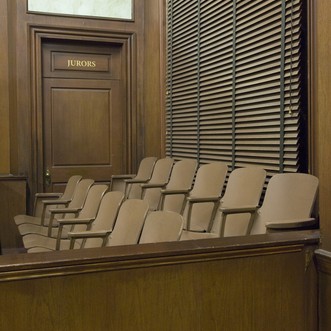If racial comments are made in jury deliberations, courts should investigate, SCOTUS says

Racial comments in jury deliberations can violate a defendant’s right to a fair trial, and require review, the U.S. Supreme Court ruled Monday in the appeal of a Colorado man’s misdemeanor unlawful sexual contact and harassment convictions.
The appeal was brought on behalf of Miguel Angel Pena-Rodriguez, who was accused of groping teenage girls at his workplace, the Washington Post reports. He argued that he did not touch the girls, and it was a case of mistaken identity. The jury was unable to reach a verdict on the felony charge against Pena-Rodriguez of attempted sexual assault on a child. Pena-Rodriguez was convicted of one misdemeanor count of unlawful sexual contact and two misdemeanor counts of harassment for his behavior toward the two teen girls.
A juror in the case during deliberations reportedly stated that Pena-Rodriguez was Mexican, and “Mexican men take whatever they want.”
Defense attorneys found out about the juror’s comments after the verdict. They asked the judge to investigate whether what was said prevented their client from getting a fair trial, but the judge said no, citing state and federal laws that preclude challenging statements made during jury deliberations. The Colorado Supreme Court upheld the decision.
The majority in Pena-Rodriguez v. Colorado (PDF) found that preventing bias in jury deliberations is needed for equal treatment under the law, which is “central to a functioning democracy.”
Justice Anthony M. Kennedy wrote for the majority. He was joined by Justices Ruth Bader Ginsburg, Stephen G. Breyer, Sonia Sotomayor and Elena Kagan.
Justice Samuel A. Alito Jr. wrote the dissent, which was joined by Chief Justice John G. Roberts Jr. and Justice Clarence Thomas. They found that that the juror’s comments did not justify the change, and argued that existing nonimpeachment rules promote “full and vigorous discussion.”
“By the majority’s own logic, then, imposing exceptions on noimpeachment rules will tend to defeat full and vigorous discussion, expose jurors to harassment, and deprive verdicts of stability,” Alito wrote.
The case result is “a major constitutional breakthrough in the criminal law field,” according to Lyle Denniston Law News. “For well over two centuries in American and English law, once a jury in a criminal case reached its verdict, it could not be questioned about its deliberations. The Supreme Court partly relaxed that quite rigid rule on Monday.”
Updated at 4:05 p.m. to link to Lyle Denniston Law News.
Write a letter to the editor, share a story tip or update, or report an error.


